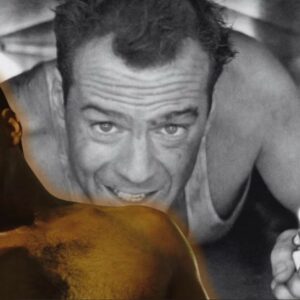Queen Latifah, a powerhouse in the entertainment industry, has had a profound impact on modern cinema. Her journey from a groundbreaking rapper to a versatile actress and influential producer highlights a career marked by boundary-pushing roles and trailblazing efforts in diversifying the film landscape. This article delves into Queen Latifah’s transformative influence on cinema and the trends she has helped shape.
1. A Trailblazing Career
Queen Latifah’s career began in the world of music, where her powerful voice and unique style quickly set her apart. Emerging in the late 1980s and early 1990s, she became a significant figure in hip-hop, with her debut album All Hail the Queen (1989) establishing her as a leading artist. Her transition to acting might have seemed unconventional, but it showcased her remarkable versatility.
Her acting debut in Set It Off (1996) was a pivotal moment. The film, which featured a predominantly female cast in a high-stakes heist drama, highlighted Latifah’s ability to handle complex characters. Her role as Cleo, a strong yet vulnerable bank robber, was a revelation. The performance was both critically acclaimed and commercially successful, establishing her as a formidable force in Hollywood.
Latifah’s career trajectory is a testament to how talent and perseverance can break through industry barriers. From her early roles to her more recent projects, she has continually proven her ability to adapt and excel, setting a high standard for versatility in the entertainment industry.
2. Breaking Stereotypes
Queen Latifah’s career has been marked by her efforts to challenge and redefine stereotypes associated with African American women in cinema. In an industry often criticized for its limited and often stereotypical portrayals of Black women, Latifah has consistently sought out roles that offer a broader, more nuanced perspective.
Her role in Chicago (2002) is a prime example. As Matron “Mama” Morton, Latifah delivered a performance that was both commanding and layered. The film, a musical about crime and corruption in the jazz era, allowed Latifah to showcase her singing prowess while also presenting a character who was both complex and multidimensional. This role, among others, demonstrated her ability to transcend typical portrayals and bring depth to her characters.
Similarly, in Hairspray (2007), Latifah’s portrayal of Motormouth Maybelle, a confident and vibrant DJ, challenged conventional roles. Set in the 1960s, the film addressed issues of race and body image with humor and heart. Latifah’s performance was instrumental in presenting a character who was both empowering and endearing, further expanding the range of roles available to actresses of color.
3. Championing Inclusivity and Diversity
Latifah’s impact extends beyond her on-screen performances. As a producer, she has been a vocal advocate for inclusivity and diversity in the entertainment industry. Her production company, Flavor Unit Entertainment, has played a crucial role in bringing underrepresented voices and stories to the forefront.
One of the most notable projects from Flavor Unit is Living Single, a groundbreaking sitcom that aired from 1993 to 1998. The show, which featured an all-Black cast and centered on the lives of four African American women, was a pioneering effort in representing Black experiences on television. It received critical acclaim and remains influential in discussions about diversity in media.
Latifah’s production efforts have continued with projects like The Equalizer, a reboot of the classic series that reimagines the titular character as a Black woman. This project, along with others from Flavor Unit, highlights her commitment to creating content that reflects a diverse range of experiences and perspectives.
4. Empowering Women in Film
Queen Latifah’s roles are often characterized by themes of empowerment and resilience, which resonate with audiences on a deep level. Her portrayal of strong, independent women provides a refreshing contrast to the often limited roles available to women in film and television.
In Girls Trip (2017), Latifah’s role as a successful businesswoman who embarks on a wild adventure with her friends exemplifies her ability to portray multifaceted female characters. The film was both a commercial success and a cultural touchstone, celebrated for its honest and humorous depiction of female friendship and empowerment.
Latifah’s influence extends behind the scenes as well. She has been a mentor and supporter of emerging talent, particularly women of color. By using her platform to uplift others, she has contributed to a more inclusive and supportive industry environment.
5. Influence on Contemporary Trends
Queen Latifah’s impact on contemporary cinema trends is significant. Her success has highlighted the demand for diverse casting and stories that reflect a wide range of experiences. In recent years, there has been a growing emphasis on inclusivity in Hollywood, with more films and television shows featuring diverse casts and exploring underrepresented narratives.
Latifah’s career has played a crucial role in this shift. Her ability to excel in a variety of roles, from drama to comedy to musical performances, has demonstrated that there is a market for stories that go beyond traditional boundaries. This has encouraged other creators to embrace diversity and challenge stereotypes, leading to a broader and more inclusive range of content.
Moreover, Latifah’s influence is evident in the growing trend of reboots and adaptations that feature diverse leads. Her role in The Equalizer is a prime example of how established franchises can be reimagined to reflect a more inclusive perspective. This trend towards diversity in familiar narratives is a direct result of the groundwork laid by trailblazers like Latifah.
Conclusion
Queen Latifah’s impact on modern cinema is profound and far-reaching. From her early days as a rapper to her achievements as an actress and producer, she has consistently pushed the boundaries of what is possible in the entertainment industry. Her career is a testament to the power of talent, determination, and the courage to challenge stereotypes.
Latifah’s contributions to cinema are not just limited to her own performances. Her efforts to champion inclusivity and diversity, empower women, and influence contemporary trends have reshaped the film landscape. As a trailblazer who redefined modern cinema, Queen Latifah continues to inspire and pave the way for future generations of artists and storytellers.





